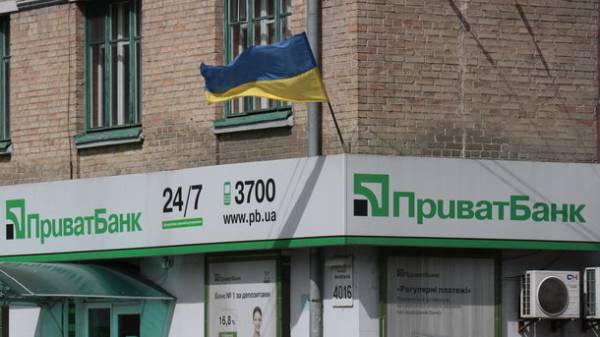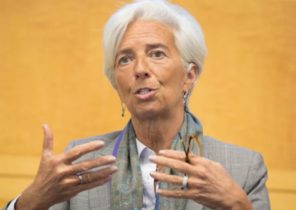
Representatives of the National Bank of Ukraine (NBU) has provided MPs with information on results conducted by Erst&Young (EY) audit of PrivatBank. According to the regulator, the audit confirms that PrivatBank before the nationalization was a pyramid scheme. About it reports a press-service of the NBU.
“All the conclusions of the independent auditor again confirmed made by the NBU makes estimates regarding the poor financial condition of PrivatBank at the time of nationalization and the validity of state decisions on participation in the capital of the Bank to protect more than 20 million of its customers and maintain its financial stability in the country. Therefore, these decisions of the audit and not subject to revision“, – said Deputy head of the NBU Ekaterina Rozhkova during the meeting of the profile Committee of the Verkhovna Rada.
Among the key findings of the auditor, Deputy head of the NBU identified the following:
Provisions for impairment of loans and advances to customers was at 184, 3 billion UAH, which fully confirms the “hole” in the balance sheet at the time of nationalization and disastrously low quality of assets.
- Negative balance sheet and regulatory capital PrivatBank on 31 December 2016 were moments 882 million. and minus 2.6 billion. respectively. This, in turn, confirms the need for additional capitalization of the Bank.
- Confirmed the concentration of the corporate loan portfolio in the core business areas of the former shareholders – among the borrowers there is no major enterprise that is not associated with the group “Privat”.
- A significant amount of impaired loans – 206,5 billion UAH, of which only a small portion – loans to individuals and small and medium businesses (14.9 billion UAH). According to the NBU, it says risky lending policy, which was conducted by the former management.
“For comparison: the volume of public funds in the Bank at the time of entry in the state capital amounted to 151,2 billion. That is, in the Bank prior to nationalization there were no resources to return deposits. PrivatBank was a financial pyramid“, – noted in the NBU.
- 5) Of 178,4 billion of corporate loans and UAH 15.3 billion of financial leasing collateral provided only UAH 23.7 billion. Due to the lack of collateral borrowers are not interested in repayment of loans and recovery of debts in a judicial order is extra heavy.
“The auditors do not confirm the accuracy of the data contained in the annual report of PrivatBank, 2015, accepted by the previous auditor – PwC. Practically, this means that the depreciation of loans could happen in 2016, as in previous years, ” – said Rozhkov.
- See also: Around the “Private” opened up a new scandal: what is happening and how to work the Bank
According to her, EY did not include issues related to insider loans PrivatBank in the framework of the preparation of a report, Bank statements and 2016. Confirmation of the insider nature of loans to PrivatBank former related parties included in the list of tasks of the forensic audit, which should be completed by the end of September this year.
“The claims on which the appealed nationalization [Privat], may not result in the return of the Bank’s previous owners, because, according to article 41 of the law of Ukraine “About system of guaranteeing deposits of individuals”, the state as an investor cannot be deprived of the right of ownership acquired the Bank’s shares, and such shares may not be recovered from the state in favor of the previous owner,” concluded Rozhkova.
As you know, PrivatBank was nationalised in December 2016. The whole procedure took 72 hours. The reason is that “Private” could not execute the recapitalization program. The Finance Ministry and the NBU had already stated that the move to the state was the only viable option to save financial institutions. At the same time, a former beneficiary of “Privat” Igor Kolomoisky insisted that PrivatBank was the victim of the “tyranny of the NBU”. Later Kolomoisky began to challenge the nationalization of the Bank in court.







